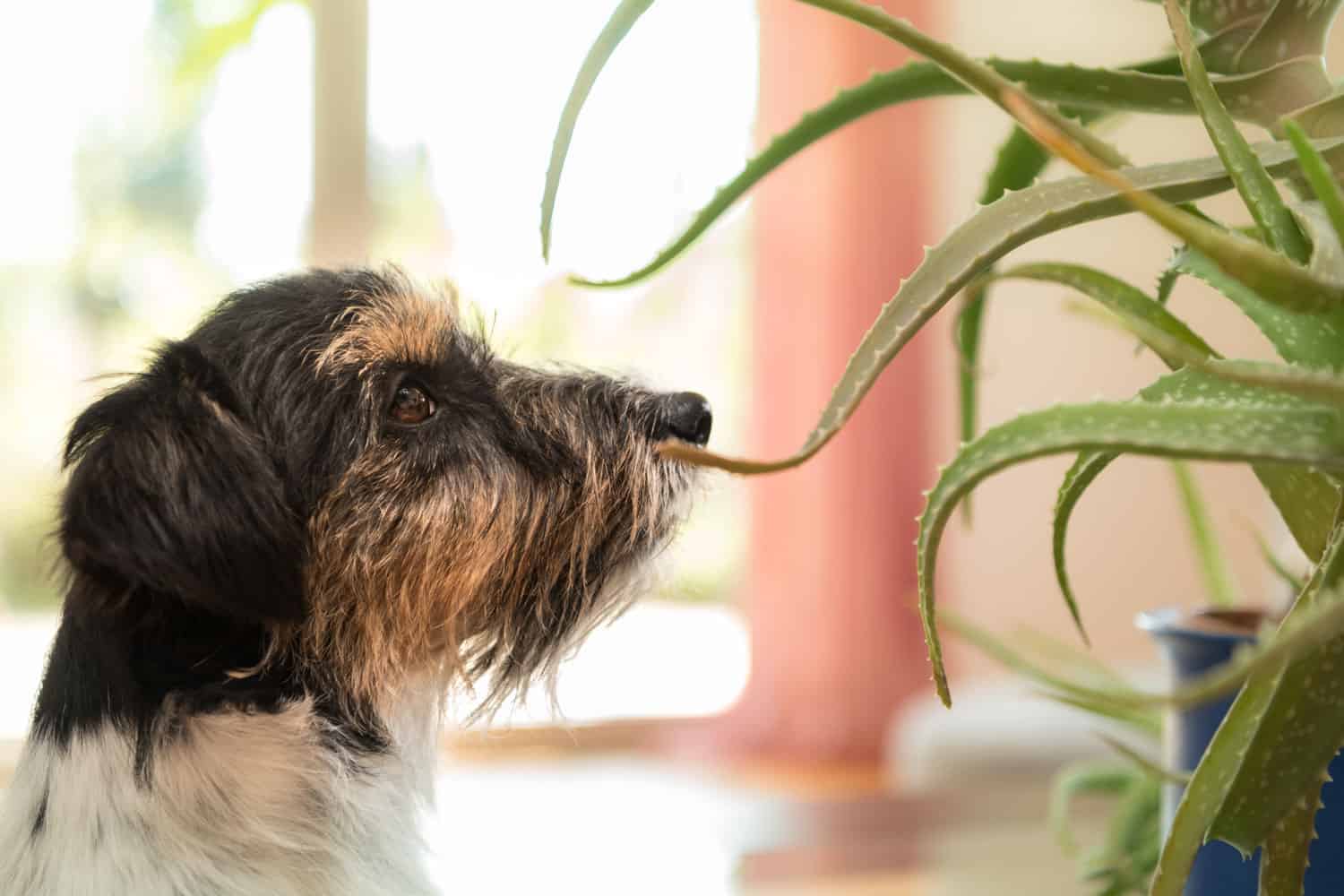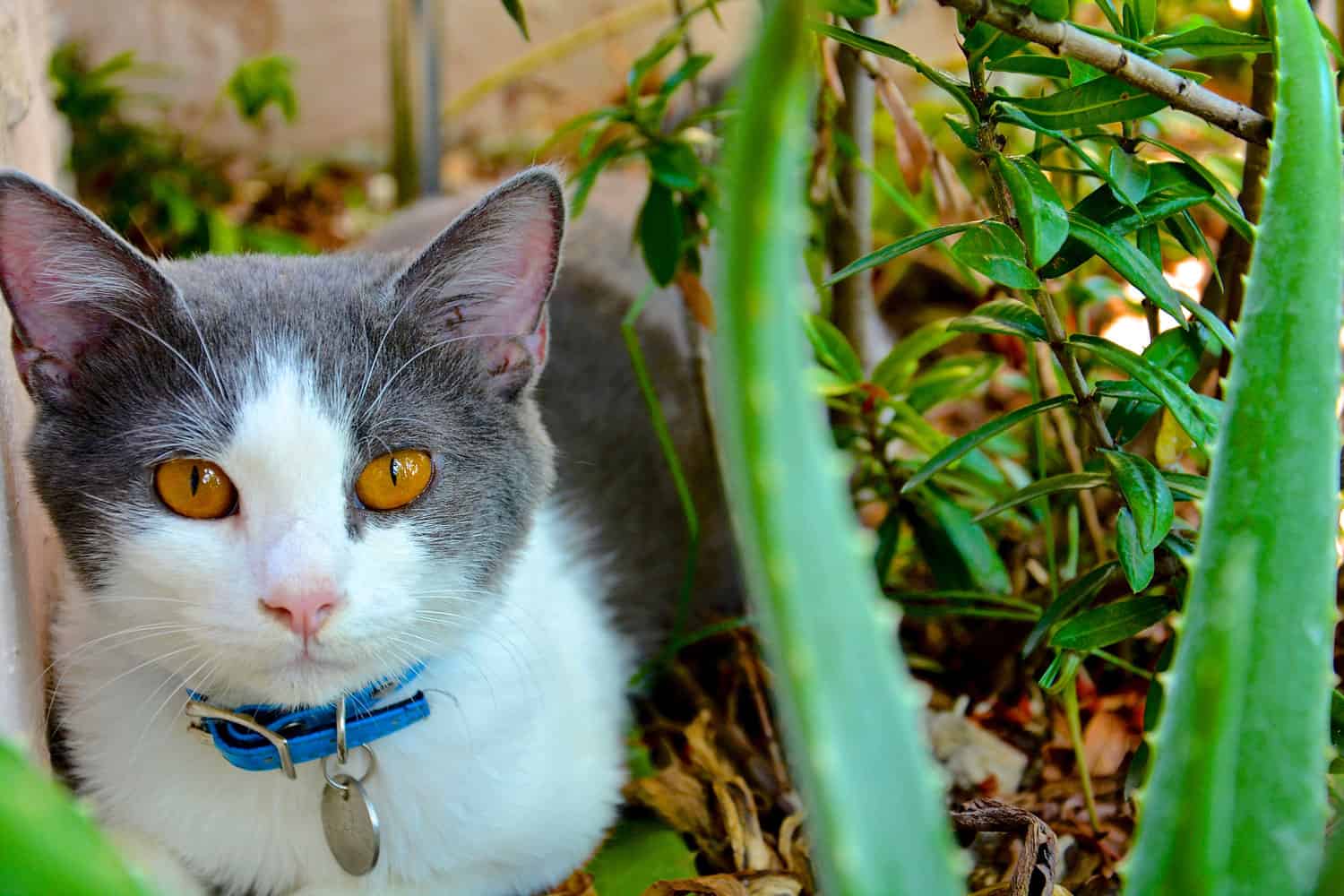Do you have a furry friend at home and are wondering if aloe vera is safe to have around them?
Aloe vera is a popular plant known for its medicinal properties and is used in many products, from skincare to dietary supplements.

However, when it comes to pets, it's essential to know the potential risks and benefits of having aloe vera around them.
According to the American Society for the Prevention of Cruelty to Animals (ASPCA), aloe vera is toxic to dogs, cats, and horses.
The toxic principles in aloe vera are saponins and anthraquinones, which can cause vomiting, lethargy, and diarrhea in pets if ingested.
While the gel inside the aloe vera plant is considered edible, it's still essential to keep it out of reach from your pets.
Understanding Aloe Vera
Aloe vera is a succulent plant used for centuries for its medicinal properties. The gel inside the aloe vera plant contains vitamins, minerals, and antioxidants that are beneficial to your pet's health.
Aloe vera can be used topically or orally to treat various skin conditions, digestive issues, and more.
Benefits of Aloe Vera for Pets
Regarding pets, aloe vera can be a safe and effective treatment option when used correctly. However, it's important to note that not all aloe vera products are created equal.

Some aloe vera products may contain harmful additives or preservatives that can be toxic to your pet. Here are some of the benefits of aloe vera for pets:
Soothes Skin Irritations
Aloe vera can be applied topically to alleviate skin irritations, including hot spots, rashes, and insect bites in pets, particularly dogs.
The gel within the plant possesses anti-inflammatory attributes that effectively minimize redness and swelling.
Promotes Digestive Health
Administering aloe vera orally can be beneficial for enhancing digestive health. The plant encompasses enzymes that aid in bettering digestion and mitigating inflammation in the digestive tract.
Boosts Immune System:
Aloe vera is rich in antioxidants that can fortify your pet's immune system, shielding them from illnesses and diseases.
When using aloe vera on your pet, it's essential to use products specifically made for pets.
Human-grade aloe vera products may contain additives or preservatives that can harm your pet. Always consult with your veterinarian before using any new treatments on your pet.
Click here to buy these Pet Ear Wipes on Amazon.
Click here to buy this Aloe Vera Veterinary Cream on Amazon.
Click here to buy this on Amazon.
Aloe Vera and Pet Safety: An Overview
Although the gel of the aloe vera plant is considered edible, it's essential to keep in mind that some aloe vera products contain other ingredients that can be harmful to your pets.
Aloe vera has stuff like saponins and anthraquinones, which can cause some reactions in dogs, cats, and horses, like an upset stomach, feeling lethargic, vomiting, or diarrhea.
If you suspect that your pet has ingested aloe vera or a product containing aloe vera, it's essential to contact your veterinarian immediately.
Your veterinarian may recommend inducing vomiting or other treatments depending on the severity of the symptoms.
Preventing Aloe Vera Exposure in Pets
As mentioned earlier, aloe vera can be toxic to pets, especially dogs and cats.
Therefore, it is crucial to take some precautions to prevent your pets from being exposed to aloe vera. Here are some tips to help you keep your pets safe:
1. Keep Aloe Vera Plants Out of Reach
If you have aloe vera plants at home, make sure they are placed in areas that are inaccessible to your pets.
Dogs and cats love to explore and chew on plants, so keeping aloe vera plants out of reach is essential.
You can place the plants on high shelves or hang them from the ceiling to keep them away from your pets.
2. Use Aloe Vera Products with Caution
If you use aloe vera products on your skin or hair, ensure your pets do not come into contact with them.
Aloe vera gel, lotions, and shampoos can harm pets if ingested. Therefore, it is best to apply these products in areas that your pets cannot reach.
3. Store Aloe Vera Products Safely
If you have aloe vera products at home, ensure they are stored safely where your pets cannot access them.
You can keep them in cabinets or drawers that are out of reach of your pets. Also, ensure the products are tightly sealed to prevent your pets from accidentally ingesting them.
Non-Toxic Alternatives for Aloe Vera
If you're looking for non-toxic alternatives to aloe vera, especially concerning pets, there are several plants you can enjoy at home without posing a risk.
Here are some alternatives:
Spider Plants (Chlorophytum comosum)
Spider plants are not only pet-friendly but also easy to care for and can thrive in a variety of indoor conditions.
Boston Fern (Nephrolepis exaltata)
A popular choice among pet owners, Boston ferns are non-toxic and also have the added benefit of being air purifying.
Areca Palm (Dypsis lutescens)
Also known as the Butterfly Palm, the Areca Palm is safe for pets and effectively purifies indoor air.
Bamboo Palm (Chamaedorea seifrizii)
Known for its air-purifying qualities, Bamboo Palm is another pet-safe alternative to Aloe Vera.
Money Tree (Pachira aquatica)
Money Trees are non-toxic to pets and are believed to bring good luck and prosperity.
Maranta (Maranta leuconeura)
Also known as the Prayer Plant, Maranta is pet-safe and adds a touch of color with its unique red veined leaves.
These plants are fabulous, non-toxic alternatives to aloe vera, ensuring the safety and well-being of your pets while also beautifying your space.
Each plant comes with its own care needs, so it's wise to pick one that gels well with your living setup and the amount of care you can provide.
Also, before you decide, it's an excellent practice to scout for other plants that might pose risks to your cherished pets, like snake plants, for instance.
Making an informed choice will not only keep your green buddies thriving but also ensure a haven for your furry companions.



